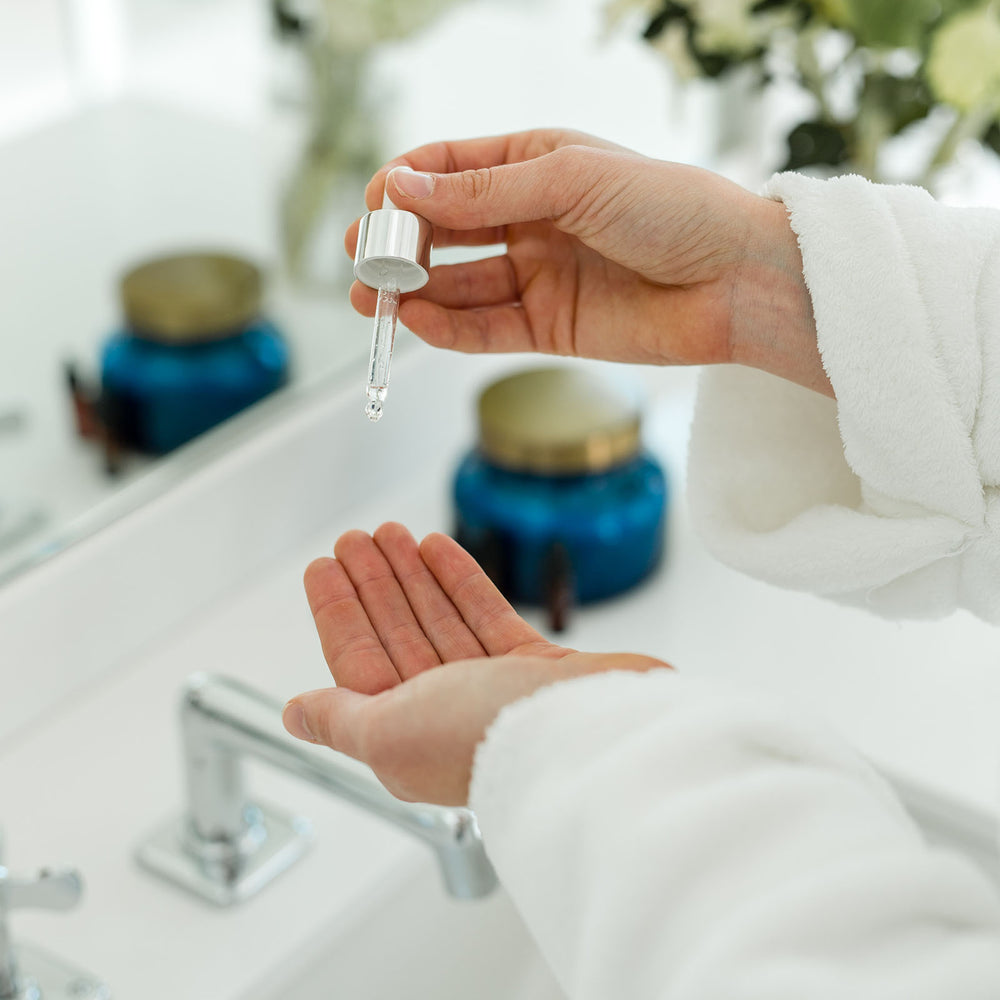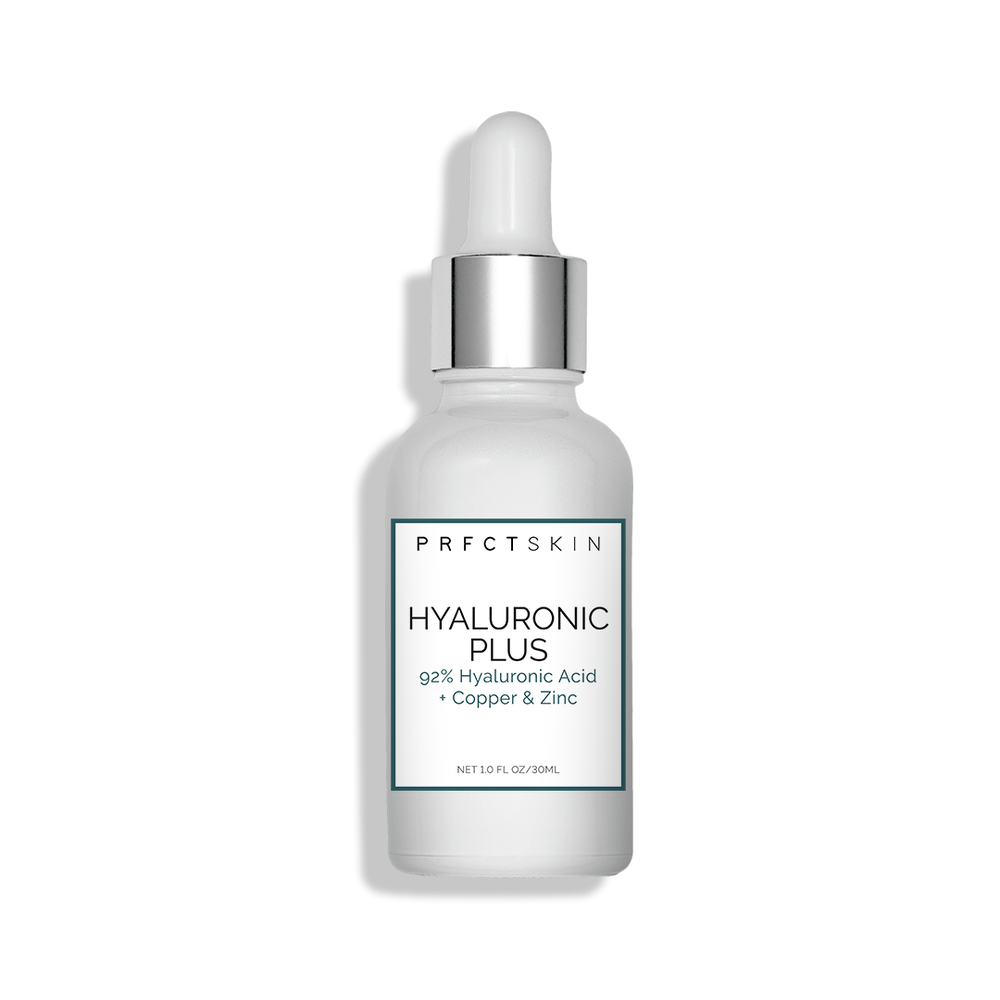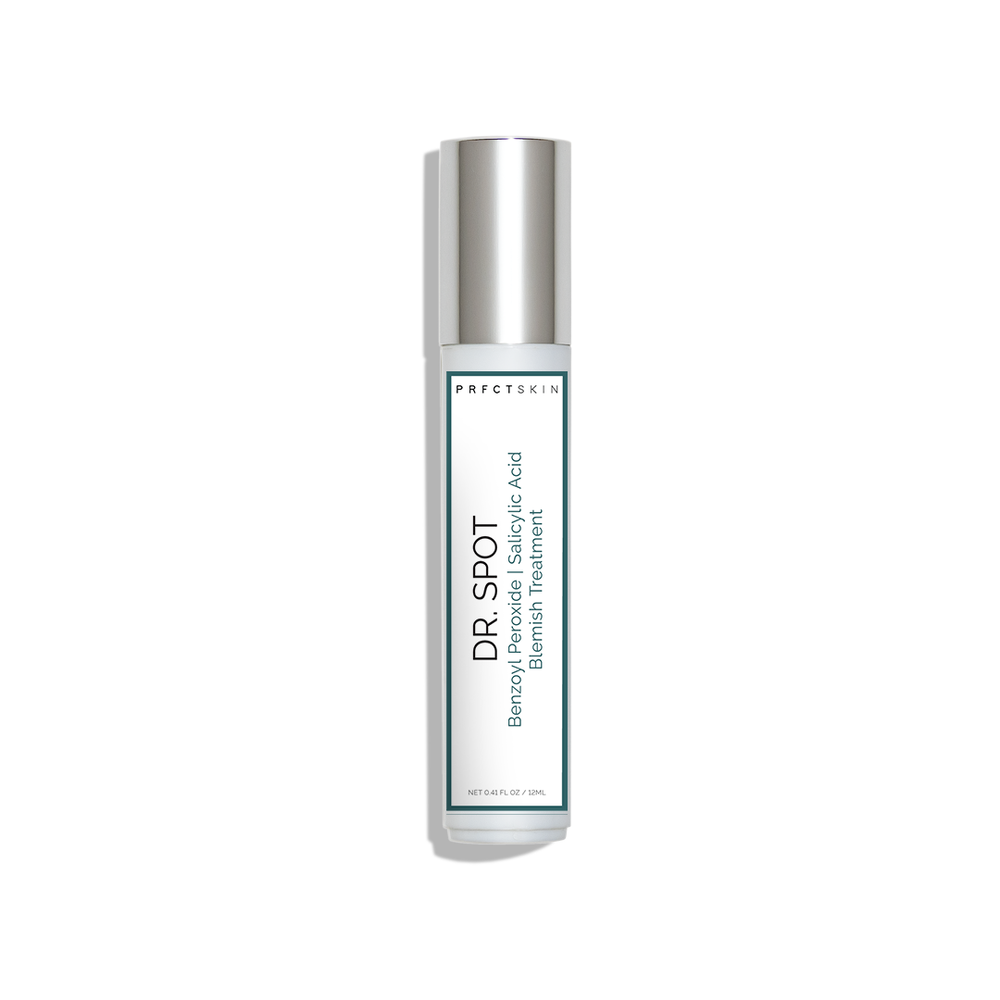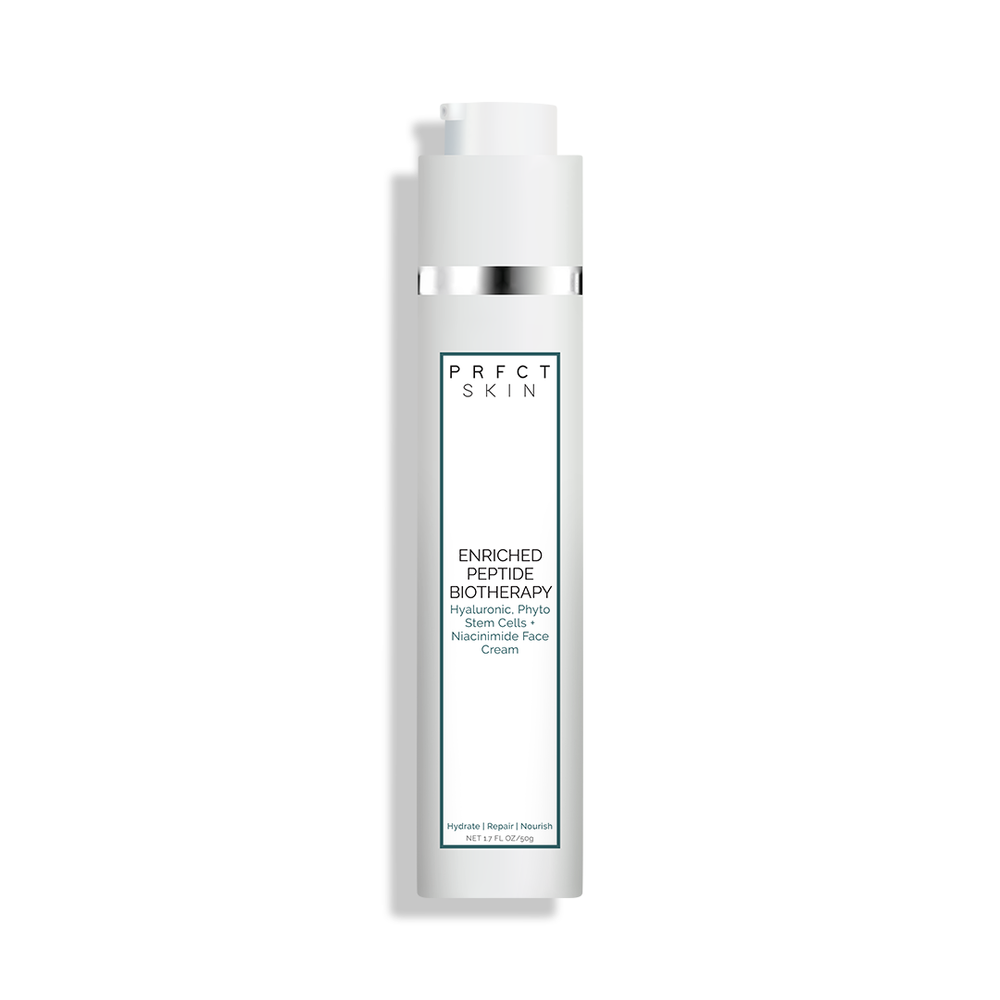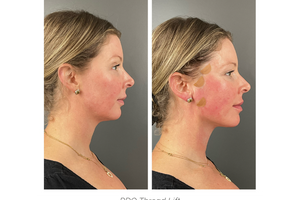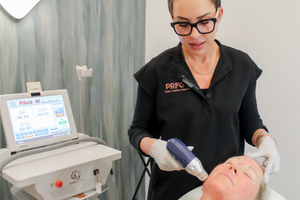Today, let's talk about a different kind of "mask." As we all continue to adjust to this “new normal” and work to flatten the curve, it means adapting to our new home office setups, 24/7 childcare and homeschooling, postponed trips and events, and face masks when we leave our homes, per the CDC recommendation (and The State of California's Guidance for Face Coverings, if you’re in California too). Regardless of whether you are wearing a medical mask as an essential worker or if you’re donning a fabric mask on your daily walks or grocery store trips, you’re likely noticing some changes on your skin.
Two of the most-asked questions I’ve received during the last few weeks are: how are masks impacting my skin and should I change up my routine to address this?
Firstly, masks are definitely impacting your skin, and secondly, while all skin is individual and unique, there are some general modifications to your routine I suggest.
How Masks Impact Your Skin
When you protect your face with a mask, your skin can get damp from the moisture in your breath trapped underneath the fabric. This dampness can lead to a build up of oil and sweat on your skin, which makes it susceptible to breakouts and irritation.
Fabric rubbing against your skin also naturally leads to friction and irritation, as well as a build up of sweat, dirt and makeup where the fabric comes into contact with your skin, causing rashes, inflammation and breakouts.
When you sport your mask, you are more likely to wash your face too (I advise washing your face after removing your mask). Depending on your choice of cleanser and current skincare regimen, this can dry out your skin, leading to a rough, uneven texture and cracks in the skin, which often preempt acne breakouts by allowing bacteria, germs and other irritants into the skin.
Masks & Skincare: What You Need to Know
While all of this may sound daunting, masks are here to stay for the foreseeable future as they play a pivotal role in protecting our health and wellbeing. Luckily, inflammation and breakouts are treatable. Here’s what you need to know.
The Mask
Per CDC guidelines, you should be opting for a cloth face covering, unless you are a healthcare worker serving on the frontlines. Whether you’re fashioning your own mask or purchasing one, make sure that the fabric touching your face is comfortable. If it’s causing any discomfort, it’s likely going to lead to a rash or skin irritation. I recommend cotton - it’s a breathable fabric and is relatively non-irritating for the skin. I also recommend washing and cleaning your mask frequently to remove any build up of skin irritants, like sweat, dirt and oil.
Post-Mask Care
After washing your hands thoroughly when you remove your mask, wash your face, neck and decolletage with a gentle cleanser. This can help prevent any oil blockage and pore irritation. If you can’t wash your face at that moment, I recommend using a quick toner to remove any bacteria and quickly clean your facial skin. (Can you link to Balancing Toner and Defense here)
Following cleansing, I suggesting applying a serum with hyaluronic acid, like Hyaluronic Plus, to minimize any skin redness from mask friction, as well as to hydrate and nourish dry skin, solving the oil/water balance issue that can exacerbate breakouts. Maintaining a strong skin barrier (which helps prevent the spread of bacteria, viruses and infection) is a part of protecting yourself, as is wearing your mask. Hyaluronic acid is known for creating this strong, natural ‘seal’ on the superficial layer of the skin, keeping you better protected from environmental damage and toxins.
If you are struggling with acne breakouts after wearing your mask, I recommend applying a spot treatment, like Dr. Spot, that contains salicylic acid. Salicylic acid acts as a gentle exfoliator, drawing out blackheads and removing excess oil, preventing potential flare ups and clogged pores, effectively breaking the acne cycle, so your skin can remain calm and clear.
Finally, it’s important to apply a moisturizer to keep your skin barrier balanced and hydrated. If your skin is particularly irritated and/or dry, I recommend an intensely moisturizing night cream like Perfect Face’s Enriched Biotherapy. This high performance cream nourishes dry skin and repairs the skin’s barrier function, again creating an additional barrier between you and germs.
Wash Your Hands
While washing hands with soap and water is the best way to get rid of germs in most situations, the CDC advises using an alcohol-based hand sanitizer with at least 60% alcohol, if soap and water aren’t readily available. This advanced hand sanitizer protects you and your family from germs with 80% ethyl alcohol in accordance with FDA regulations, as well as citrus essential oils to protect your skin and keep it soft and healthy amidst heavy use.
Stay Safe
I can’t wait to see you all back in the shop soon!
Best,
Zoe
Shop The Perfect Mask, serums, Dr. Spot, and moisturizers today.


